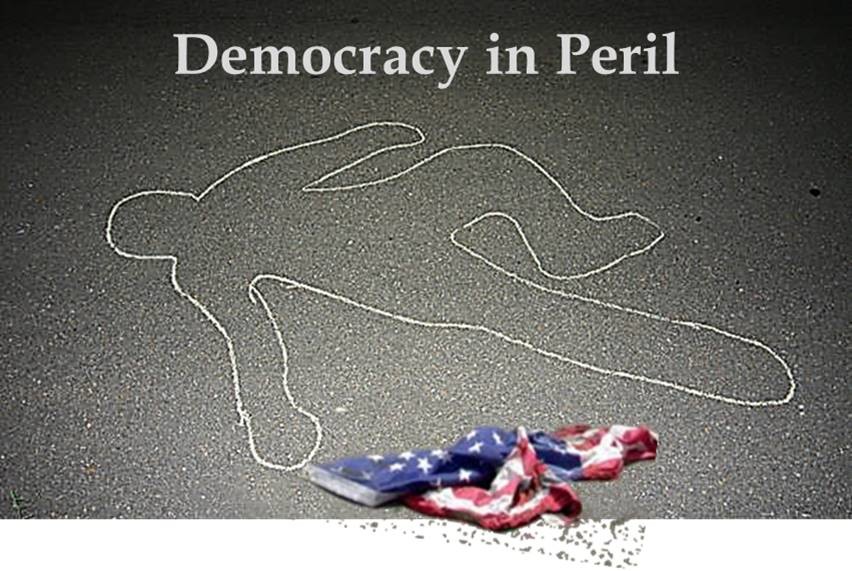
This isn’t new
 In June 2017, yes 2017, Members of the House of Representatives wanted federal funds to hire private security in their home districts after the shooting of Republican House leader Steve Scalise and others on a baseball field. This followed the shooting of Representative Gabrielle Gifford’s in 2011.
In June 2017, yes 2017, Members of the House of Representatives wanted federal funds to hire private security in their home districts after the shooting of Republican House leader Steve Scalise and others on a baseball field. This followed the shooting of Representative Gabrielle Gifford’s in 2011.
At that time former House Sergeant-At-Arms Paul Irving wrote “in the first six months of 2017, the Capitol Police investigated more than 900 different threats to lawmakers” and “Over the course of the last five years, Members have had their home addresses and likenesses published in documents and on internet postings,” and “Members receive threatening communications on a daily basis via the internet, telephone, and mail-in Washington, D.C.”
In response a House panel approved $10 million for the rest of fiscal 2017 so Representatives could use the money to pay for an off-duty police officer or private security guards at official events. Another $7.5 million was requested for Capitol Police to complete threat assessments and additional security measures when lawmakers gather in groups, and $5 million for cameras and other improvements to their district offices.
Defending Democracy; Was a Lesson Learned?
Well, you would think so because to further address the threats the 115th Congress proposed the legislative branch appropriations bill for 2018, and within this bill, it clearly stated the Committee on House Administration “believes there is no higher priority in this bill than providing adequate resources for the physical security of Members of Congress, staff and their constituents”. The Committee on House Administration even planned to provide members an additional $25,000 per year for the purpose of providing Member security when away from the capitol.
At the time Rep. Kevin Yoder of Kansas, the chairman of the subcommittee writing the security budget legislation said he wanted to provide more money for personal protection because “some members wanted security details to follow them wherever they go”. “There are a number of members who have had very specific threats and after the Scalise tragedy are feeling legitimately scared that they will be next,” he said.
And then-Rep Yoder pointed out the cost for 24-hour security would be prohibitive and could make members less accessible to voters. “It puts up barriers between the public and members of Congress,” In his opinion lawmakers needed to be “responsive to the people they represent” and “a wall of security would complicate that”.
Stop!
“But”? Rep. Yoder what do you mean “but”? There is no “but” here sir, with all due respect to your opinion, Members of Congress with a properly trained detail of agents are just as accessible to the public. In fact, the public is now safer with these agents present because you can now meet with your representative in a safer overall environment. Sir, “but” kills the momentum, it stops funding and it caused a false sense of security highlighted by the January 6th incursions to the Capitol.
2020
In a Congressional Research Report October 2020, it says “Due to attempted attacks on current and former government officials (and others) and increased political tension across the nation, there may be congressional interest in protective details for government officials”.
Really? There may be interest in protective details? In 2017 Rep Yoder was talking about protective details for Members of Congress and that was two years before this report, the authors write there may be some interest. What happened to the $25,000.00? Well, what happened was the “but”. No one felt they needed a detail or it would get in their way of meeting with the public. No one wanted to be seen as needing a security detail. The Sergeant of Arms and Capitol Hill Police and every intelligence agency said the threats were increasing, the national political discourse was increasingly negative and biased, and extremist media were beating the drums of violence, “but”.
The CRR report continues; in addition, official records and news accounts show that there have been at least 20 attacks against Members of Congress since 1789. And according to a 1998 U.S. Marshals Service report, data on assassinations and assassination attempts against federal officials suggest that elected officials are more likely to be targeted than those holding senior appointed positions. “BUT”
During this time heightened security concerns factored into members’ reluctance to hold town hall meetings with constituents. Many members of Congress canceled these meetings because they couldn’t find within their districts a safe venue for a town hall. So let’s analyze this, the elected officials of our Democracy, our Republic stopped meeting with their constituents because of fear from violence at these public meetings. Our elected officials canceled trips, events, meetings, and whatever else over security concerns but didn’t take advantage of the money for security? Why? Oh, right “but”.
2021
Well, it’s 2021 and after the January 6th breaching of the security of the capitol and the exponential increase in the threats to Members of Congress, it’s about time for a serious conversation about their safety and security.
@ISA has trained state and local law enforcement to provide close protection to Members of Congress since 2011, a program built after the shooting of Rep Giffords. And we can say with absolute assurance Members are not hindered by the presence of the detail nor are they blocked from interacting with the public. There is no “but”
Answers
The only thing preventing members of Congress from being safer while they do the work their constituents sent them to do is quite honestly the Member themselves. Refusing to take their security seriously, believing the false narrative a protective detail blocks the public from speaking with you and thinking if you carry a gun you’re protected are self victimizing and debunked excuses. The truth is anyone wishing you harm will wait for the right moment and you will never have a chance to reach for your gun.
 In a 2000 GAO report, it was explained protective operations consist of having armed personnel within the vicinity of a protected official and in locations the official plans to travel. Note, “In the vicinity” and not on top of the Member or blocking the Member from meeting with the public. When done correctly, close protection can be unobtrusive and ISA has been teaching the correct and proper techniques to our students successfully for years. Our training programs focus is on protecting elected officials and candidates for office, so we know there is no reason why as a Member of Congress you can’t have a properly trained team.
In a 2000 GAO report, it was explained protective operations consist of having armed personnel within the vicinity of a protected official and in locations the official plans to travel. Note, “In the vicinity” and not on top of the Member or blocking the Member from meeting with the public. When done correctly, close protection can be unobtrusive and ISA has been teaching the correct and proper techniques to our students successfully for years. Our training programs focus is on protecting elected officials and candidates for office, so we know there is no reason why as a Member of Congress you can’t have a properly trained team.
The GAO’s 2000 report also pointed out that “officials received different levels and frequencies of protection, which generally included protection while they worked in their offices, attended public events, and traveled on official business. Some officials were protected during private personal time.
So given a threat assessment will be completed and each Members individual needs addressed you may not need a detail all the time. A professional agent will work with your office staff, the Sergeants of Arms office, and state and local law enforcement to determine what you need and don’t need.
ISA has been providing security services for some time and if you work in a professional and collaborative manner operations can be seamless and beneficial to the client in ways they never realize. Honorable Members will not be late for meetings or events, you can avoid embarrassing moments, never be out of communication, will be afforded the opportunity to enjoy a moment of personal time uninterrupted, eat a meal in peace, be able to go to the gym or a child’s school event.
Medical emergencies can be handled faster, injuries treated and chronic conditions monitored by agents. Family members are also safer and your home a place of tranquility and rest. Your detail can help with travel arrangements, liaison with local or state agencies, and secure your office.
And while state and local enforcement generally lack the training, resources, and manpower to provide a dedicated detail and the private sector lacks the authority needed, it is possible to train law enforcement and augment them with what they need, or provide a properly vetted and trained private sector detail the authority needed.
In short, it’s time to accept Members of Congress need additional security and to let go of the outdated stereotypes of what a detail is, or how they work. It’s time for Members of Congress to embrace what a security detail can provide outside of the security mission and how they can assist with logistics and planning or communications. It’s time to safeguard our democracy.
About the author
Mr. Parker is the Chief Executive Officer of Independent Security Advisors LLC, a certified disabled veteran-owned company providing consulting, program management, and executive leadership services to national and international clients, civilian law enforcement, the private security sector, and non-government organizations on areas of concentration that include diplomatic and executive protection, physical security, supporting democracy through the protection of elected officials and world leaders, anti-terrorism and combating extremism.
A retired member of the U.S. Army with more than 20 years of distinguished military service, Mr. Parker has been nominated and selected for a variety of special assignments including the special advisor and consultant on matters of protective operations, physical security, terrorism, and extremism to the Government of Iraq & Kurdish autonomous region; Professor of Military Science & Leadership, Virginia Tech University.
Mr. Parker is a graduate of the Federal Law Enforcement and US Army Law Enforcement Training Academy’s and his civilian education includes studies in leadership and communications with Central Texas College, Political Science, and religion with Columbia College and Homeland Security with a minor in Emergency Management with the University of Maryland.
[House Report 115-199]
115th Congress } { Report
HOUSE OF REPRESENTATIVES
LEGISLATIVE BRANCH APPROPRIATIONS BILL, 2018
Protection of Federal Government Officials
https://crsreports.congress.gov | IF10843 · VERSION 6 · UPDATED
Members Of Congress Allowed Use Of Campaign Funds For Home Security
July 14, 20175:07 PM ET
SCOTT DETROW

 E-mail us
E-mail us